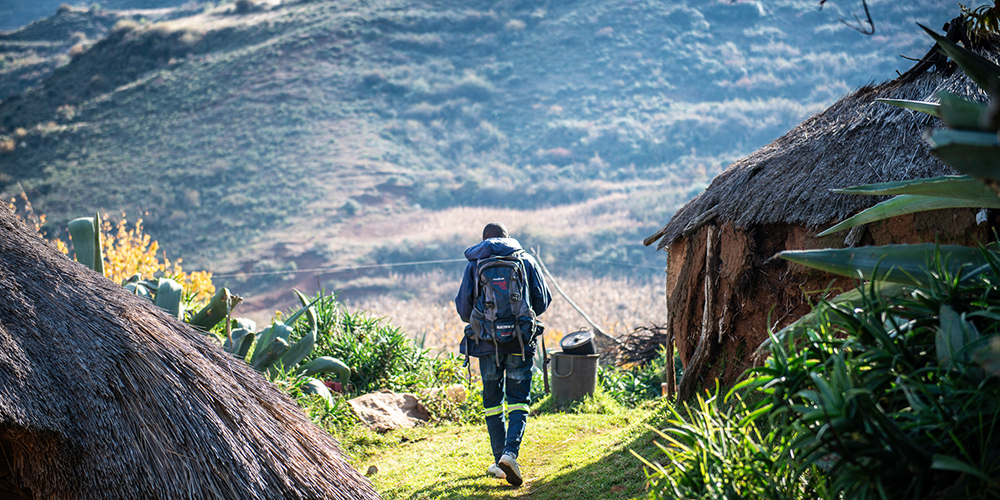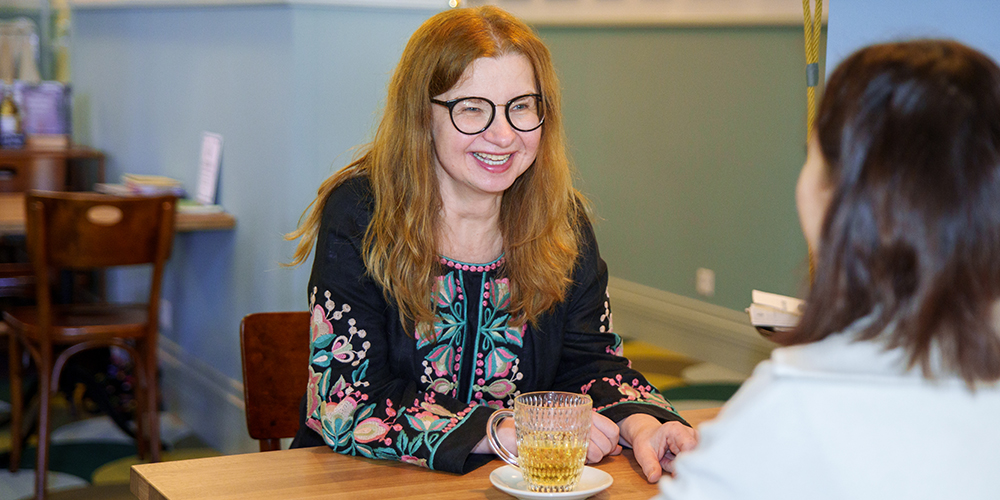The University of Basel’s contribution to the SDGs
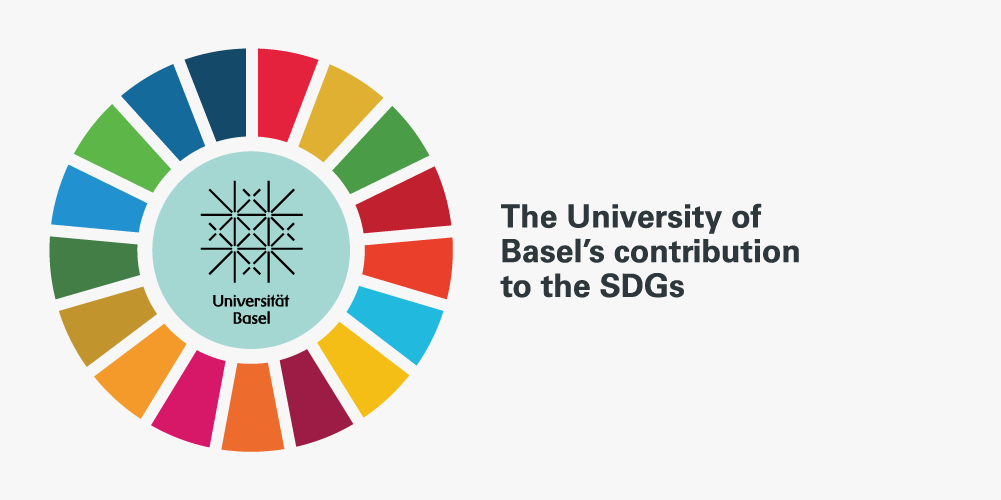
The University of Basel is helping to meet the Sustainable Development Goals (SDGs) in a number of areas. In addition to research and teaching, these also include activities related to knowledge transfer, operations management and its role as an employer and public institution.
The University of Basel is committed to finding solutions to social challenges on the regional, national and global level, such as those defined in the United Nations SDGs. The following examples provide a glimpse into the various ways the University of Basel is helping to meet the SDGs.
By addressing the various SDG issues in teaching, students can learn to become change agents for sustainability and prepare themselves to apply these skills for (more) sustainable development in their future careers as well. SDG 1 “Poverty eradication”, for example, is covered in the lectures “Experimental Development Economics” and “Geography of Developing Nations”. Classes such as “Nutrition and Health” and “Food Systems and Transforming Agriculture” or “Biochemical Cycles and Sustainable Land Use” cover the issues related to SDG 2.
SDG 1 – End poverty in all its forms everywhere
SDG 2 – End hunger, achieve food security and improved nutrition and promote sustainable agriculture
Research in the life sciences, pharmaceutical sciences, sports science and medicine, as well as research at the Swiss TPH, an institution associated with the University of Basel, are particularly noteworthy here. The Botnar Research Centre for Child Health (BRCCH) was founded in 2018. It receives CHF 100 million in funding from the Botnar Foundation. Its goal is to improve the health of children and young people around the world. In addition to its research efforts, the topic of health is also covered in teaching, such as in the seminar “Current Ecological and Health Issues in Africa” as well as in the university’s health promotion and University Sports programs.
SDG 3 – Ensure healthy lives and promote well-being for all at all ages
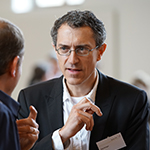
The Swiss Tropical and Public Health Institute (Swiss TPH) works and conducts research in around 300 projects in 100 countries, with the goal of improving the health of populations there. We also place a special focus on countries with low to middle incomes. All of our projects contribute to meeting one or more of the SDGs, whereby our greatest contribution is to SDG 3: Health and well-being.
Prof. Dr. Jürg Utzinger, Director Swiss TPH
The University of Basel offers learning opportunities to all age groups, from children to seniors. Public events like the Sustainability Week allow a broad audience to learn about sustainable development. More specifically, the University of Basel offers the Master in Sustainable Development and the Transfaculty Cross Section Program Sustainable Development (TQNE).
SDG 4 – Ensure inclusive and equitable quality education and promote lifelong learning opportunities for all
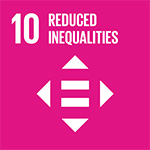
The Office for Diversity and the Students without Barriers (StoB) service point are committed to reducing inequality at the University of Basel. The Office for Diversity’s antelope career program, for example, supports highly qualified female scientists in their career development. The StoB service point at the University of Basel supports students with physical, chronic or mental disabilities, as well as helping the faculties to meet the special needs of these students. In teaching, for example, the course “Soziales Basel” (Socially Responsible Basel) focuses on social inequalities in Basel. The Center Gender of Studies deals with the role of gender in academia and society, as well as studying genders and their relationship to one another.
SDG 5 – Achieve gender equality and empower all women and girls
SDG 10 – Reduce inequality within and among countries
The topic of energy is one research focus at the University of Basel. For example, the SCCER CREST Center of Excellence conducts interdisciplinary research on Switzerland’s renewable energy transition. A research project, which was awarded EUR 4 million as part of the EU Horizon 2020 research program, also explores how equality can be improved in terms of access to energy sources, as well as developing strategies to combat fuel poverty.
SDG 7 – Ensure access to affordable, reliable, sustainable and modern energy for all
The University of Basel is an attractive employer that is always striving to offer its university members a motivating work and study environment. The University of Basel also contributes to the regional economy in various ways, such as by collaborating with companies. Start-ups and spin-offs make it possible to tie knowledge and well-qualified people to Basel, thus generating added value for the region.
SDG 8 – Promote sustained, inclusive and sustainable economic growth, full and productive employment and decent work for all
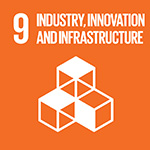
As an important center of science and industry, the University of Basel is promoting innovation and technological progress. For example, private companies as well as the public sector can benefit globally and regionally from the technology transfer brought about by inventions and patents originating at the University of Basel. In teaching, the issues set out in SDG 9 are covered in the lectures “Global Change Resources”, “Environment and technical change in endogenous growth theory” and “Materials for sustainable chemistry”, for example.
SDG 9 – Build resilient infrastructure, promote inclusive and sustainable industrialization and foster innovation
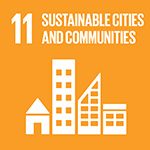
Research projects as well as classes at the University of Basel deal with SDG 11 in an interdisciplinary and international way. An example of research project is Perimeters of Multilayered Democratic Citizenship in a Mobile and Multicultural World.
SDG 11 – Make cities and human settlements inclusive, safe, resilient and sustainable
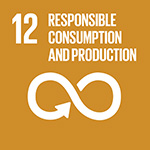
The University of Basel is aware of its own responsibility and is committed to a respectful treatment of ecological, economic and social resources. For its catering services, the university believes it is important to offer climate-friendly, sustainably produced foods. The University of Basel offers a brochure Sustainability: Tips for Everyday Life and fact sheets with information on how individuals can make their lifestyles more sustainable.
SDG 12 – Ensure sustainable consumption and production patterns
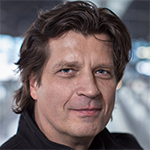
Our research group works closely with external stakeholders and embarks on joint international research projects that address issues of corporate social responsibility or sustainable mobility, for example. I also serve as the Chair of the Basel Sustainability Forum and World Sustainability Forum, which is dedicated to addressing current sustainability topics each year and helping to advance innovation and education. In this way, we can contribute to meeting SDGs 3, 4, 8, 11, 12 and 17, among others.
Prof. Dr. Max Bergman, Social Research and Methodology Group
There are a wide range of research fields relevant to these topics at the University of Basel. These are mainly the subject of study in the Department of Environmental Sciences.
The environmental geosciences, for example, deal with the problem of soil erosion and its impact on land, air and water, along with mitigation strategies. The Physiological Plant Ecology research group studies reactions of plants to environmental changes, such as climate change, in order to build a foundation for sustainable land use. The Man-Society-Environment (MSE) research group studies microplastic levels in the environment as well as the effect of invasive fish species in Switzerland.
SDG 6 – Ensure availability and sustainable management of water and sanitation for all.
SDG 13 – Take urgent action to combat climate change and its impacts.
SDG 14 – Conserve and sustainably use the oceans, seas and marine resources for sustainable development
SDG 15 – Protect, restore and promote sustainable use of terrestrial ecosystems, sustainably manage forests, combat desertification, and halt and reverse land degradation and halt biodiversity loss
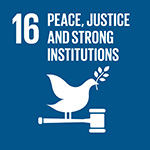
The Knowledge for Peace research project conducted by the swisspeace foundation under the leadership of Prof. Dr. Laurent Goetschel as well as the Basel Institute on Governance are addressing SDG 16 from various perspectives. The research project IMAJINE, which is funded through Horizon 2020, has several goals, including the development of new integrative policies to address territorial inequalities within the EU more effectively.
SDG 16 – Promote peaceful and inclusive societies for sustainable development, provide access to justice for all and build effective, accountable and inclusive institutions at all levels
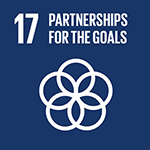
The various research partnerships at the University of Basel make a significant contribution to building a global partnership.
SDG 17 – Strengthen the means of implementation and revitalize the global partnership for sustainable development
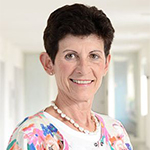
The International Office supports the development and expansion of research and innovation partnerships with countries in southern and sub-Saharan Africa. The University of Basel maintains over 300 partnerships in more than 40 countries around the world and promotes student and lecturer exchanges. This contributes specifically to SDG 3, SDG 4, SDG 16 and SDG 17.
Prof. Dr. Hedwig J. Kaiser, Head of National & International Partnerships

